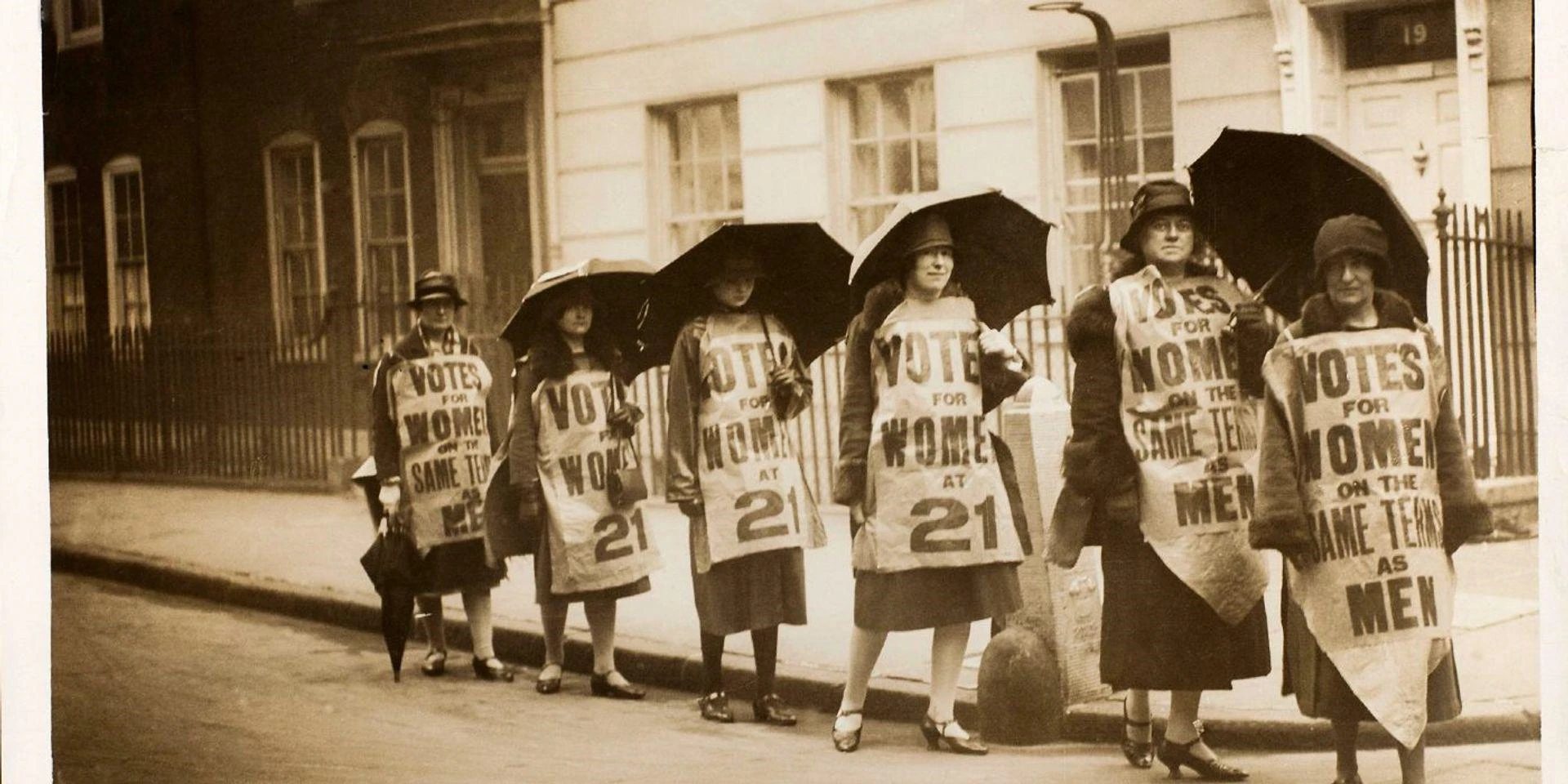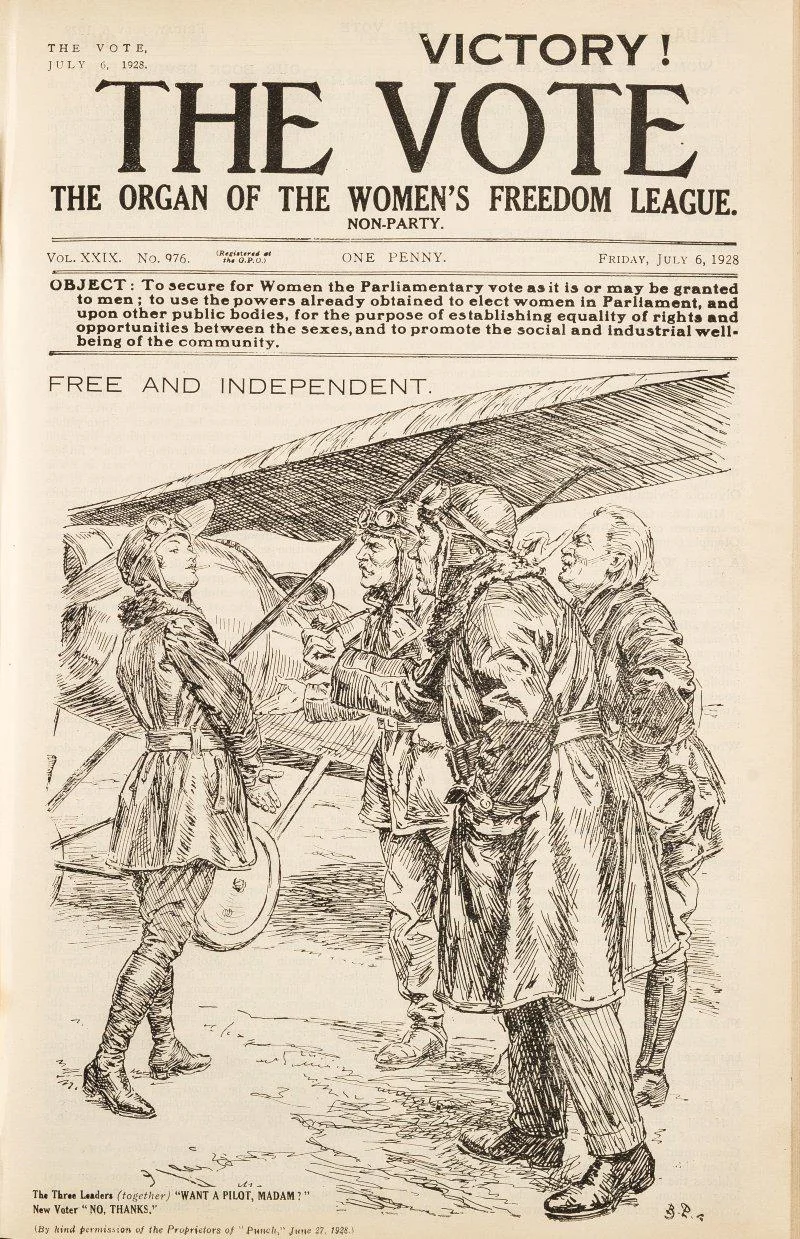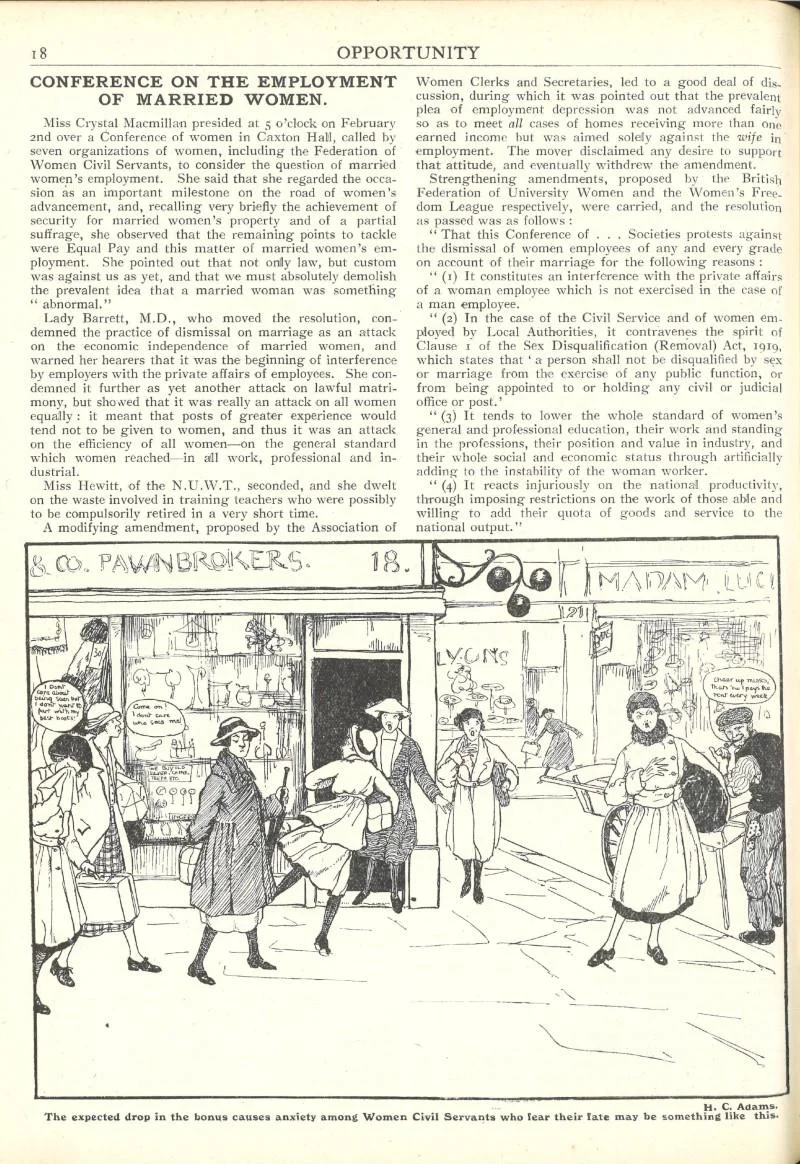Campaigning Women

"The vote is won but the fight is not over"
Time and Tide, 6 July 1928

By Professor Maria DiCenzo
Wilfrid Laurier University
Introduction
The major feminist debates of the interwar period played out in the periodicals of feminist, as well as non-political, voluntary, party, and faith-based organisations. The end of the First World War and the passing of the first franchise bill in 1918, along with legislative victories such as the Sex Disqualification (Removal) Act of 1919, gave the women’s movement new momentum in the 1920s. Working women fought to keep and advance their jobs in industry and in professions like the civil service, while organisations like the National Union of Societies for Equal Citizenship and the new Six Point Group embarked on controversial reforms ranging from birth control and the rights of mothers, to equal opportunities and rights to education and work – all while continuing to campaign for equal franchise rights until 1928. These efforts met with sustained opposition because the demands challenged social norms and impinged on the interests of government, capital, labour, and religious groups.
The periodicals featured here represented different ideological positions and genres, but collectively they capture the diversification of feminist discourses and the women’s movement. They were ambitious in their attempts to mobilise consensus around complex issues and to serve as a meeting ground for different tendencies in the movement.

The Vote, 6 July 1928
The Equal Franchise Act of 1928 was celebrated widely as a milestone, as evidenced by this Punchcartoon on the cover of The Vote, organ of the Women’s Freedom League, a major suffrage organisation which pursued a wide range of reforms well into the interwar years.

Home and Country, July 1921
Lady Rhondda, founder and later editor of Time and Tide, was a founding member of the Six Point Group, Britain’s leading equal rights organisation between the wars. In this issue of Home and Country, she explains its programme to members of the National Federation of Women’s Institutes, one of the largest organisations representing housewives and mothers in this period.

Opportunity, February 1922
During the 1920s, many women were dismissed from their employment upon marriage and the abolition of this marriage bar became an urgent feminist reform, particularly for women in the professions. Opportunity, the official organ for women civil servants, was a prominent voice in these debates.

The Labour Woman,June 1930
This Labour Party journal for working women covered news of political activities and campaigns, alongside domestic content including a column entitled ‘The Housewife’ from 1920. Working-class housewives formed the majority of newly enfranchised women voters. The drawing and caption on the cover of this issue prompt more questions than answers about their political power.

The Woman’s Leader, 2 October 1925
Birth control was one of the most contentious issues facing feminists, dividing them on religious and moral grounds. The National Union of Societies for Equal Citizenship sparked controversy when it endorsed birth control along with the endowment of motherhood as part of its programme in 1925 and used The Woman’s Leaderas a forum for debate.

Urania, September - December 1921
Urania, a privately printed journal with international and Irish underpinnings, offers a more radical example of interwar media. Premised on the idea that ‘sex is an accident’ the journal provided a venue for critical debates about gender and sexuality, in the context of the arts, science, and politics.